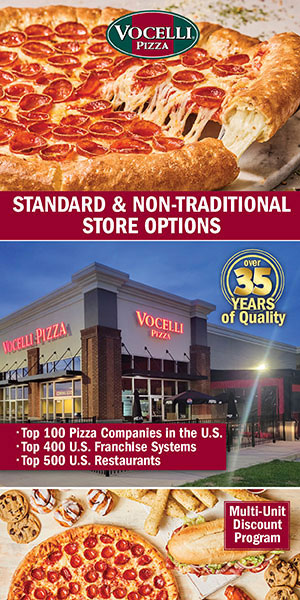6 Essential Lease Negotiation Tips for Franchisees

Choosing the right location and negotiating a lease for your franchise can have significant impacts on your bottom line for many years to come. The lease agreement is not just a legal document; it’s a pivotal factor that can affect the success and profitability of your franchise. Whether you’re opening a new store or preparing to negotiate a renewal, this article will walk you through the top six ways to save money with your next lease to set the stage for a prosperous business venture.
1) Location and foot traffic: A foundation for success
We all know that location matters. Choosing a spot with high foot traffic and visibility is crucial for attracting customers and ensuring a steady flow of business. Before signing a lease, thoroughly research the surrounding area, considering the demographics of the neighborhood, nearby businesses, and the overall ambiance. Assess the accessibility of the location and the availability of parking, as these factors can affect the ease with which customers can patronize your establishment. Not sure where to start? Consider tech tools like Placer.ai to help with foot traffic analysis for your site selection.
In addition to foot traffic, evaluate the competition in the vicinity. While a competitive environment can be healthy, an oversaturated market may pose challenges. Striking the right balance and understanding your target market are key to selecting a location that aligns with your brand and concept.
And remember, when it comes time to renegotiate your lease, that same technology you used to help you find the best location can give you insights into foot traffic changes over time. You can, and should, be using that data to help when it comes to negotiating, if it works in your favor.
2) Lease terms and conditions: Navigating the agreement
The lease agreement itself is a complex document, and franchisees must pay close attention to all of the terms and conditions. Negotiating favorable lease terms can make a significant difference in the overall cost of occupancy and the long-term viability of the business.
First, make sure you understand the type of lease you are signing (gross, net, triple net (NNN), etc.) Then, consider the lease duration. While a longer lease term can provide stability for your business, it’s crucial to negotiate terms that align with your growth and business strategy. Additionally, explore options for lease renewal and be clear on any potential rent increases over the term of the lease.
Make sure you understand all the clauses in the lease. Unless you are a legal or real estate expert, lease language can be very complicated. You will probably want to get a real estate lawyer involved to review the language on your behalf. More affordable AI tools can be used to help translate this legal language into more easily understandable information.
3) Rent and operating costs: The true cost of occupancy
While the base rent is a significant component of your lease agreement, it’s essential to consider the total cost of occupancy. Operating a unit involves more than just paying rent, and franchisees should be aware of additional costs such as common area maintenance (CAM) fees, property taxes, insurance, and utilities.
During lease negotiations, seek clarity on who is responsible for these additional costs. In some cases, landlords may pass on a portion of operating expenses to tenants through CAM fees. Understanding these costs up front allows you to budget more accurately and avoid surprises that could strain your bottom line. Wherever there is vague language in the lease, make sure to clarify it before signing.
Consider negotiating a fixed or graduated rent structure to provide predictability and manageability in your monthly expenses. Having a clear understanding of all costs associated with the lease allows you to make informed decisions and plan for long-term financial sustainability.
4) Tenant improvement allowance: Building your brand in the space
Creating a space that reflects your brand is important for attracting customers and standing out in a competitive market. Negotiating a favorable tenant improvement allowance (TIA) is key to achieving this goal. The TIA is the financial contribution from the landlord toward the build-out or customization of the leased space.
Before entering into lease negotiations, thoroughly assess the condition of the space and estimate the costs associated with necessary improvements. This allowance can significantly reduce your up-front expenses, freeing up capital for other critical aspects of your business.
5) Exit clauses and flexibility: Planning for the future
In the dynamic world of business, circumstances can change, and having flexibility in your lease agreement is essential. Include exit clauses that allow for subleasing or assignment of the lease if needed. These provisions provide an escape route in case your business strategy evolves or external factors necessitate a change in location.
When negotiating exit clauses, ensure that the terms are fair and reasonable. Discuss the circumstances under which you can exercise these options, and seek legal advice to ensure that the language in the lease agreement provides the necessary flexibility without undue financial burden.
6) Stay on top of renewals
Missing a lease renewal is one of the most expensive mistakes you can make. Depending on your relationship with the landlord, it can mean increased rent or having to find a new location altogether.
To prevent this, consider adopting lease management software to help you track any upcoming renewal or other important dates once the lease has been signed, especially once your business grows to exceed about 10 properties. The software will send you and your team automated reminders and can assign tasks so that any upcoming renewals are in plain sight so you can start negotiating early and get a better deal.
Wrapping up
Choosing the right lease for your franchise is a multifaceted process that requires careful consideration of various factors. By prioritizing location and foot traffic, negotiating favorable lease terms, understanding the true cost of occupancy, securing a reasonable tenant improvement allowance, and planning for flexibility in the future, franchisees can set the stage for a successful and cost-effective business operation.
Taj Adhav is the founder of Leasecake, an award-winning lease and location management platform built for multi-unit operators. Leasecake was built to help franchisees and franchisors focus on what matters when it matters, saving time, minimizing risk, and better managing growth through easy-to-use, flexible software. Contact him at [email protected].
Share this Feature
Recommended Reading:
| ADVERTISE | SPONSORED CONTENT |
FRANCHISE TOPICS
- Multi-Unit Franchising
- Get Started in Franchising
- Franchise Growth
- Franchise Operations
- Open New Units
- Franchise Leadership
- Franchise Marketing
- Technology
- Franchise Law
- Franchise Awards
- Franchise Rankings
- Franchise Trends
- Franchise Development
- Featured Franchise Stories
| ADVERTISE | SPONSORED CONTENT |

$200,000
$211,400





 The multi-unit franchise opportunities listed above are not related to or endorsed by Multi-Unit Franchisee or Franchise Update Media Group. We are not engaged in, supporting, or endorsing any specific franchise, business opportunity, company or individual. No statement in this site is to be construed as a recommendation. We encourage prospective franchise buyers to perform extensive due diligence when considering a franchise opportunity.
The multi-unit franchise opportunities listed above are not related to or endorsed by Multi-Unit Franchisee or Franchise Update Media Group. We are not engaged in, supporting, or endorsing any specific franchise, business opportunity, company or individual. No statement in this site is to be construed as a recommendation. We encourage prospective franchise buyers to perform extensive due diligence when considering a franchise opportunity.